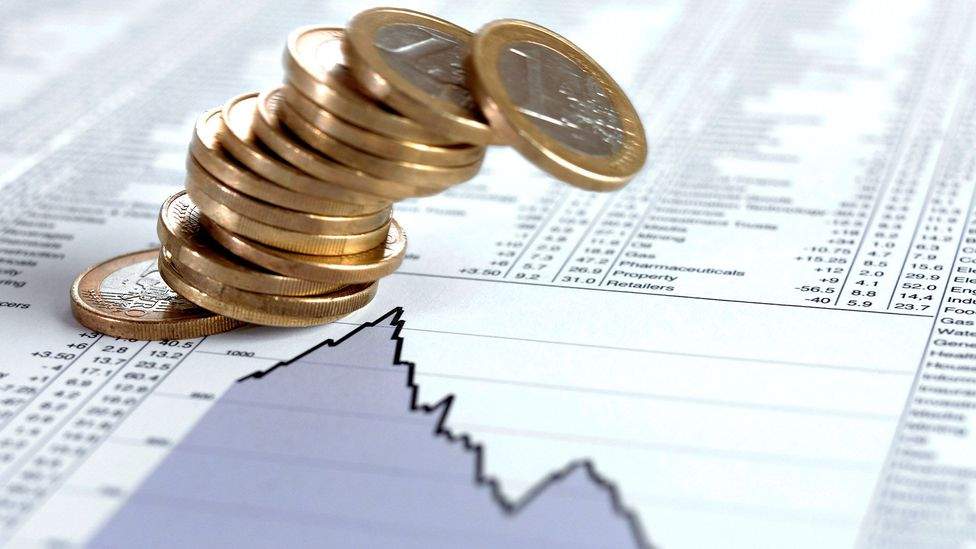There are a variety of factors that can influence a country’s currency value, including:
- Interest rates – When a country’s central bank raises interest rates, it makes holding that country’s currency more attractive to investors. This can cause the value of the currency to increase relative to other currencies.
- Inflation – If a country experiences high levels of inflation, its currency may lose value as people lose confidence in it. On the other hand, if a country maintains low inflation, its currency may be seen as more stable and valuable.
- Political stability – Investors are more likely to be willing to hold a country’s currency if they feel that the country is politically stable and unlikely to experience sudden changes or upheaval.
- Trade balance – A country’s balance of trade – the difference between its exports and imports – can also affect the value of its currency. A country with a trade surplus (i.e. it exports more than it imports) may see an increase in demand for its currency, which can drive up its value.
- Economic growth – Countries with strong economic growth may see an increase in demand for their currency, as investors look to invest in businesses operating within those countries.
- Market sentiment – Sometimes, currency values can be influenced by overall market sentiment or “mood.” If investors are generally optimistic about a country’s economy, they may be more likely to invest in that country’s currency, which can drive up its value.
- Geo-political factors – Other factors like international relations, sanctions, political events, and wars can affect a country’s currency values.
Interest Rates:
Interest rates are one of the most important factors that can affect a country’s currency value. When a country’s central bank raises interest rates, it makes holding that country’s currency more attractive to investors. This is because higher interest rates mean that investors can earn a higher return on their investment in that currency.
For example, if a country’s central bank raises interest rates, investors may be more likely to invest in that country’s bonds or other financial products, as they can earn a higher rate of return. As demand for that country’s currency increases, its value relative to other currencies may also increase.
On the other hand, if a country’s central bank lowers interest rates, this can make holding that country’s currency less attractive to investors, as they can earn a lower rate of return. As a result, demand for that currency may decrease, causing its value to decrease relative to other currencies.
Interest rates can also affect currency values indirectly. For example, if a country raises interest rates to combat inflation, this can help to increase confidence in that country’s economy and its currency. On the other hand, if a country’s interest rates are too low, it may experience high inflation, which can cause investors to lose confidence in its currency and drive down its value.
Interest rates are a key tool that central banks use to manage their economies and can have a significant impact on currency values
Inflation:
Inflation is another important factor that can affect a country’s currency value. Inflation is the rate at which prices of goods and services are increasing over time, and it is typically measured using a consumer price index (CPI).
High levels of inflation can cause a country’s currency to lose value because it erodes the purchasing power of that currency. As prices of goods and services rise, it takes more of the currency to purchase the same amount of goods and services. This can make the currency less attractive to investors, as they can earn a higher return by investing in currencies with lower inflation rates.
On the other hand, if a country maintains low levels of inflation, its currency may be seen as more stable and valuable. Low inflation can also make a country’s exports more competitive, as its goods and services may be priced more attractively relative to other countries.
Central banks can use a variety of tools to manage inflation, such as adjusting interest rates and implementing monetary policy. If a country experiences high inflation, its central bank may raise interest rates to slow down the economy and reduce demand for goods and services, which can help to bring inflation under control. However, raising interest rates can also lead to a stronger currency, as investors may be more attracted to that country’s currency due to the higher returns.
Inflation can have a significant impact on a country’s currency value, and it is an important factor that investors and central banks consider when making decisions about investing in or managing a particular currency.
Political Stability:
Political stability refers to the likelihood that a country’s government will remain stable and predictable over time. Political instability can arise from a variety of factors, such as government corruption, social unrest, civil unrest, and changes in leadership.
Political stability is important because it can affect a country’s economic growth and the perceived risk of investing in that country. When a country is politically stable, it is more likely to attract foreign investment and be seen as a safe place to do business. This can lead to increased demand for the country’s currency and a stronger currency value.
On the other hand, when a country experiences political instability, investors may become hesitant to invest in that country or hold its currency. This is because political instability can lead to sudden changes in policy, a decline in economic growth, and an increase in risk. As a result, the value of the country’s currency may decline as investors sell off their holdings.
In addition to affecting currency values, political stability can also have broader economic impacts. For example, political instability can lead to a decline in foreign investment, a decrease in tourism, and a decrease in international trade. These factors can all have negative impacts on a country’s economy and ultimately on the value of its currency.
Political stability is an important factor that investors and central banks consider when making decisions about investing in or managing a particular currency. A stable political environment can help to promote economic growth and stability, while political instability can lead to uncertainty and a decline in economic performance
Trade Balance:
The trade balance, also known as the balance of trade, refers to the difference between a country’s exports and imports of goods and services. When a country exports more than it imports, it has a trade surplus, and when it imports more than it exports, it has a trade deficit.
The trade balance can have a significant impact on a country’s currency value. When a country has a trade surplus, it means that there is more demand for its goods and services than for those of other countries. This can lead to an increase in demand for that country’s currency as foreign buyers need to purchase its currency to buy its products. As a result, the value of the country’s currency may increase.
On the other hand, when a country has a trade deficit, it means that it is importing more than it is exporting. This can lead to a decrease in demand for that country’s currency as foreign buyers do not need to purchase as much of its currency to buy its products. As a result, the value of the country’s currency may decrease.
However, it’s important to note that the impact of the trade balance on currency values can be complex and depends on a variety of factors. For example, a country with a large trade deficit may also be borrowing money from foreign investors to finance its imports, which can lead to increased demand for its currency. Additionally, a country’s trade balance can be affected by a variety of factors, such as changes in global economic conditions, natural disasters, and political events.
Trade balance is an important factor that investors and central banks consider when making decisions about investing in or managing a particular currency. A country with a trade surplus may be seen as having a stronger currency value, while a country with a trade deficit may be seen as having a weaker currency value. However, the relationship between the trade balance and currency values can be complex and depend on a variety of factors
Economic Growth:
Economic growth refers to the increase in a country’s production of goods and services over time. Economic growth is typically measured using gross domestic product (GDP), which is the total value of all goods and services produced in a country over a specific period of time.
Economic growth can have a significant impact on a country’s currency value. When a country experiences strong economic growth, it may be seen as an attractive place to invest and do business, which can lead to increased demand for its currency. Additionally, a strong economy can lead to increased consumer spending and investment, which can further stimulate economic growth and lead to a stronger currency value.
On the other hand, when a country experiences weak economic growth or a recession, it may be seen as a less attractive place to invest and do business, which can lead to decreased demand for its currency. Additionally, a weak economy can lead to decreased consumer spending and investment, which can further slow down economic growth and lead to a weaker currency value.
However, it’s important to note that the impact of economic growth on currency values can also depend on other factors, such as interest rates, inflation, and political stability. For example, a country with high inflation may experience weak currency values even if it has strong economic growth.
Economic growth is an important factor that investors and central banks consider when making decisions about investing in or managing a particular currency. A country with strong economic growth may be seen as having a stronger currency value, while a country with weak economic growth may be seen as having a weaker currency value. However, the relationship between economic growth and currency values can be complex and depend on a variety of factors
Market Sentiment:
Market sentiment refers to the overall attitude or mood of investors towards a particular currency or market. Market sentiment can be influenced by a variety of factors, such as economic data releases, political events, and changes in global market conditions.
Market sentiment can have a significant impact on the value of a currency. When investors have a positive outlook on a particular currency, it can lead to increased demand for that currency, which can lead to a stronger currency value. Additionally, positive market sentiment can lead to increased investment in a country’s economy, which can further stimulate economic growth and lead to a stronger currency value.
On the other hand, when investors have a negative outlook on a particular currency, it can lead to decreased demand for that currency, which can lead to a weaker currency value. Additionally, negative market sentiment can lead to decreased investment in a country’s economy, which can further slow down economic growth and lead to a weaker currency value.
However, it’s important to note that market sentiment can also be influenced by other factors, such as interest rates, inflation, and political stability. For example, a country with high inflation may experience negative market sentiment even if it has strong economic data releases.
Market sentiment is an important factor that investors and central banks consider when making decisions about investing in or managing a particular currency. Positive market sentiment can lead to a stronger currency value, while negative market sentiment can lead to a weaker currency value. However, the relationship between market sentiment and currency values can be complex and depend on a variety of factors
Geo-political Factors
Geopolitical factors refer to political events and developments that have a significant impact on international relations and can affect the global economic landscape. Geopolitical factors can include events such as wars, political instability, and diplomatic conflicts between countries.
Geopolitical factors can have a significant impact on the value of a currency. For example, if there is political instability in a country, it can lead to decreased investor confidence and decreased demand for that country’s currency, which can lead to a weaker currency value. Similarly, if there is a diplomatic conflict between two countries, it can lead to decreased trade and investment between those countries, which can also lead to a weaker currency value.
On the other hand, if a country experiences political stability and positive diplomatic relations with other countries, it can lead to increased investor confidence and increased demand for that country’s currency, which can lead to a stronger currency value.
However, it’s important to note that the impact of geopolitical factors on currency values can be complex and depend on a variety of factors. For example, some countries may benefit from a decrease in trade with a particular country if they are able to replace that trade with trade with other countries. Additionally, some countries may benefit from geopolitical events if they are seen as a safe haven for investment during times of uncertainty.
Overall, geopolitical factors are an important factor that investors and central banks consider when making decisions about investing in or managing a particular currency. Positive geopolitical events can lead to a stronger currency value, while negative geopolitical events can lead to a weaker currency value. However, the relationship between geopolitical factors and currency values can be complex and depend on a variety of factors
Understanding the factors that affect currency values, you can gain valuable insights into the global economy and make more informed investment decisions. Whether you’re a seasoned investor or just getting started, we hope this article has provided you with new knowledge and a deeper understanding of how the world of finance works. Keep exploring and learning, and you never know where it might take you!










